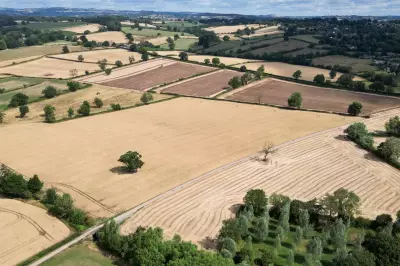
The Stark Reality Behind the Climate Summit
While over 50,000 delegates, including more than 200 from the UK, gather in the air-conditioned comfort of COP30's purpose-built 'Blue Zone' to debate Net Zero and environmental solutions, a heartbreaking scene unfolds just minutes away from the summit venue in Belem, Brazil. Dozens of plastic bottles and other rubbish float along the rivers and canals that criss-cross this gateway to the Amazon, creating a stark contrast with the high-level climate discussions.
A City Struggling with Sanitation and Homelessness
The choice of Belem as host city has faced significant criticism, not only for its difficult accessibility but for being beset with profound infrastructure problems. The scenes of squalor begin mere metres from the city's only five-star hotel, the Tivoli, where UK's Net Zero minister Ed Miliband and his entourage are staying in rooms costing £1,250 per night during the two-week summit.
Groups of homeless people, mainly from indigenous tribes, seek shade from the 36C temperatures under delivery trucks, as trees were chopped down for building projects—some connected to COP30—leaving poor neighbourhoods without natural shade. A recent report by Brazilian outlet Sumuma revealed that 55% of Belem's inhabitants live on streets without a single tree, significantly higher than Brazil's national average of 34%.
In heartbreaking scenes, people including children scramble through rubbish piles collecting cardboard or tin cans to sell for a few Reals, while large flocks of vultures hover over bins picking at waste food. At the city's famous Ver-o-Peso fish market, residents wash themselves and their clothes in the sea, seemingly oblivious to the floating rubbish surrounding them.
Infrastructure Failures and Rising Costs
Experts indicate that despite infrastructure projects worth 4.8 billion Reals (£691 million), they fail to provide sustainable solutions to Belem's water and sewage crisis. A study by Instituto Trata Brasil showed that while 76.8% of Belem's residents have access to clean drinking water, only 17.1% are connected to a sewage system.
The city's location just below the equator means biblical downpours occur at least twice daily, causing roads to flood and waste water from the poor sewage system to overflow into rivers and canals, creating an awful stench worsened by soaring temperatures.
Hotel prices have skyrocketed as 50,000 delegates scramble for accommodation in a city with only 25,000 available rooms, forcing many to stay on two cruise ships anchored nearby or in local schools. Meanwhile, nearly half of Belem's 1.4 million inhabitants live in low-lying, densely populated, low-income areas with limited sewer and electric systems.
One local hotel worker, who earned just 1,500 Reals (£216) per month and requested anonymity, told the Daily Mail: 'COP30 is a huge waste of money. What about the real problems the city is facing, like sanitation, water and the homeless problem? That's what we should be spending the money on.'
Despite organisers claiming the infrastructure projects represent 'a firm commitment to making COP30 a historic milestone,' the reality on Belem's streets tells a different story—one of deepening inequality just beyond the delegates' air-conditioned conference rooms.





